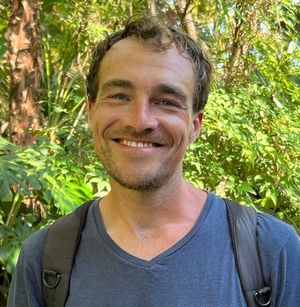There can be no vulnerability without risk; there can be no community without vulnerability; there can be no peace, and ultimately no life, without community.
— M. Scott Peck, The Different Drum
Our minds are small because our words are small. We spend our days in petty chatter about trivial subjects, the whos and whats of politics, sports, and the screen. We speak to family about the weather. We communicate with our friends in prefabricated sentences to signal the enviable nature of our life—we want everybody to believe we are “in the know,” connected to events, that we are somebody, that we have become somebody.
Indeed, our conversation is insincere, though not out of unconsciousness—for we are aware at some level of this sad fact—but out of fear. When we delve into deeper matters, our words belie the shallowness of our thoughts. We must keep our thoughts shallow out of a sense (albeit false) of self-preservation. We flee from genuine discussion about ourselves, our lives, our thoughts, because we have misdrawn the lines on our maps of reality.

Living well and living fully are little more than a function of having best drawn the lines representing the Self and its borders to others. A certain degree of closeness is necessary to know and relate to another person. A certain degree of distance from others is necessary to know and relate to oneself. We can only relate to others by having a fully developed sense of unique personal identity, and yet we can only fully develop that sense in relation to and in the context of other people.
If this sounds like a paradox, or a chicken-and-egg scenario, that is because it is. It is complex and difficult. It requires work and heightened consciousness. Hence, most people go through adulthood without questioning where and how they have drawn their lines, and suffer in ignorance from this omission, resigning the poor state of their relationships to family, friends, co-workers, and romantic partners as “just the way things are.”
This resignation—and the fact that it is so common—exposes the helplessness with which most of us view our circumstances. We exist in harsh environmental conditions where we do not feel safe to be ourselves, where we do not feel safe just to be. We perceive ourselves to be mired in this environment. We distrust opportunities that appear to be a chance to let down our guard, fearing it may be some sort of trick.

Thus, we revert to small talk at every turn. It fills the awkward silence, and it crowds out the possibility of being made uncomfortable by the truth of our lives or the lives of the people with whom we are interacting.
There will be time, there will be time,
To prepare a face to meet the faces that you meet.
T.S. Eliot, The Love Song of J. Alfred Prufrock
M. Scott Peck describes this state of affairs as “pseudocommunity.” We go around pretending we are OK, that our lives are on track, that we don’t really have any fears or apprehensions, that we don’t need help, and that we all like each other and don’t have any real conflicts.
It’s pretend. It’s fake.
It is small talk extended to our attitudes and dispositions, beyond merely our words. And it is the way most of us live all of the time. It requires little effort. The forced smile is second nature to modern man. We go along to get along.
But we aren’t getting along at all. We are building up resentment towards our friends and family members. We grow in our hatred of that annoying co-worker or classmate who perhaps does not even know the way he is perceived by those around him. If I do not say something to him, he may go the rest of his life having that effect on other people and he will be lonely, and will suffer greatly all because I did not dare disturb a superficial harmony.
We fear to disarm ourselves in the presence of others because we fear they have expectations of us, and that to be ourselves with no mask, no guard, no pretense, we are exposed to judgment and ridicule. We fear we won’t be good enough and will be rejected. Better to extend the shield just a little bit further. Better to sharpen the sword of our tongue to keep the world at a safe distance.
Unfortunately, our fear is not entirely misplaced. When we do let our guards down and allow ourselves just to be, we will spark conflict with others. That conflict is painful—often very painful. But it is only by engaging in that conflict and working through that pain, emptying ourselves of expectations of others, emptying ourselves of the desire to be perceived in such and such a way, emptying ourselves of the desire to maintain a “reputation,” that we can eventually reach true acceptance of ourselves and others.

The point at which we give up on having something or being something, that is the point where we are free to just be, and to communicate genuinely with other people—when we can be said to truly be “in community” with each other. There is no greater relief in the world that that moment when we let go completely of our expectations. Unfortunately, it is a process that we must go through over and over again, for the old rigid boundaries of the Self easily and quickly snap back into place. Sadly, it is an experience few will ever have even once, much less to make it a way of life—a way of living.
Living well requires much discipline, and letting go of expectations is one of the most difficult forms of discipline to practice, and nearly impossible to master. There are so many distractions that we easily succumb to in the attempt. Committing to such a process with other people does not come naturally to us, and inertia too frequently wins the day, and we are impoverished because of it.








